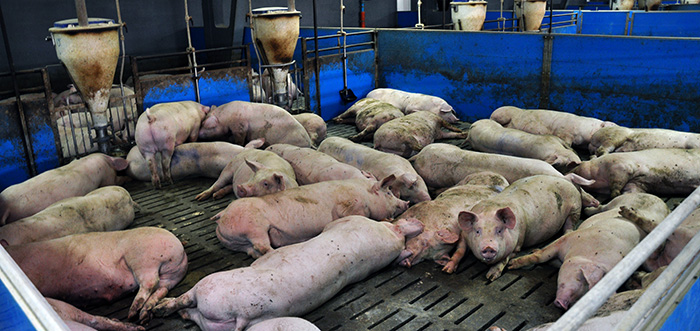German Sanchez Collado joined Garth Pig Practice in September 2018. He is interested in all aspects of pig production, especially disease control, zoonosis, biosecurity and herd health management. He qualified from Spain’s University of Cordoba in 2006
“She doesn’t want injections, she wants beer.” This was the famous recommendation of one farmer to the young James Herriot for the treatment of a sow after farrowing!
50 years have now passed by since the adventures of this particular Yorkshire vet, and the pig sector has taken many ‘spins’ as the industry develops, progresses and professionalises. Experts say science and technology are advancing exponentially more than linearly, weaving their way into our lives in ways we could never have imagined.
But I am not sure if the general public is aware of the tremendous influence science has had on pig farming, improving meat quality, production and animal welfare and health. If we take into consideration the ‘big data’ revolution and the rise of artificial intelligence, this gives another important spin to all our pig farming methods.
Nowadays, it is commonplace for farmers to use ultrasonography for the diagnosis of gestation, or to measure the corporal condition. They also keep computer records of important productive parameters and use artificial insemination.
It is not inconceivable that in a few more years, the modern farmer will employ tools like blockchain, robotics, drones, 3D printers or virtual reality training methods, as well as making more use of 5G and the ‘internet of things’.
The shortage of manpower is a problem and it could be that modernisation and technology helps improve the appeal of pig farming among younger people.
Innovation in animal health is also growing exponentially. We have had PCR diagnostics for a few decades, and DNA sequencing is increasingly affordable. The CRISPR technique seems promising for genetic selection and therapeutics.
Big data will be a very useful tool in the fight against animal diseases, with the trend towards a model that provides certification and online information on farms that are officially free of certain diseases.
We could talk about the ‘internet of animals’, using sensors and mobile applications to inform us of the state of our farm and allow an even more proactive approach. Never before have we had more tools to provide the sort of meat product that the consumer prefers, which will be of even greater importance when we have to compete in the market with new ‘laboratory’ foods that try to achieve the same level of organoleptic quality!
Technology is also giving important spins in responsible and accountable farming, sustainability, animal welfare, environmental impact and antibiotics usage, where the UK is doing quite well.
So let’s take that old farmer’s advice, and raise a glass of beer to the British Pig Industry – cheers!




